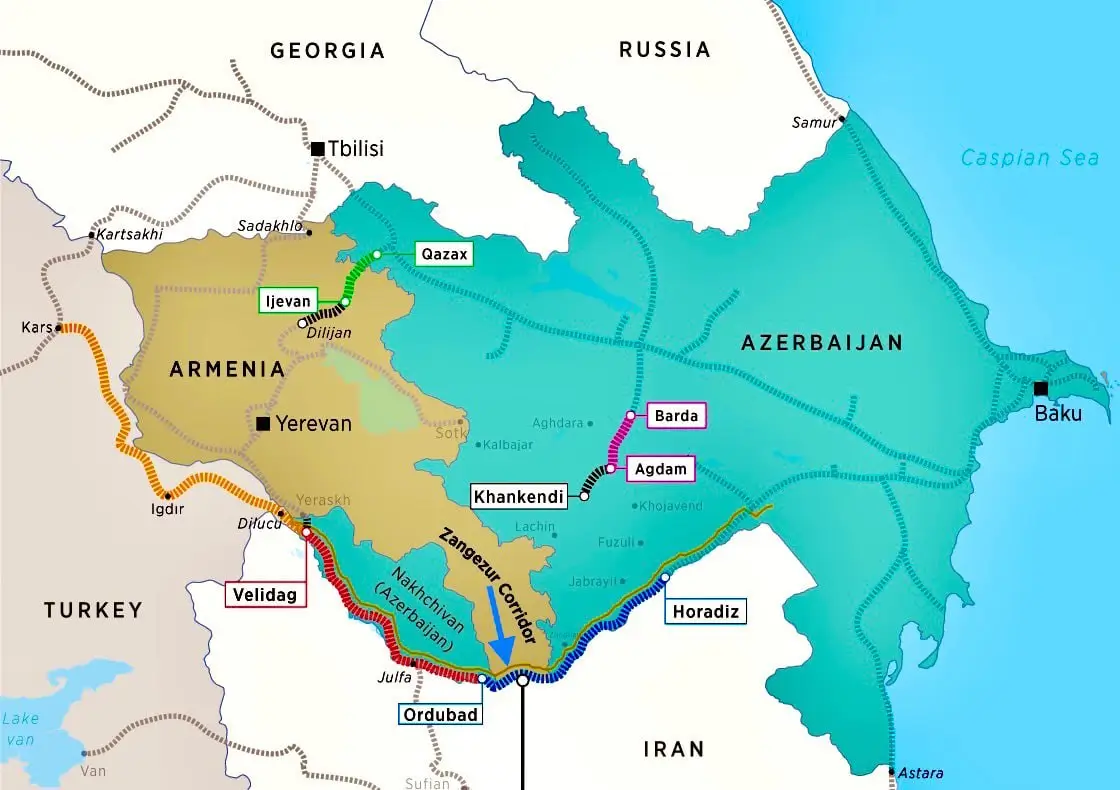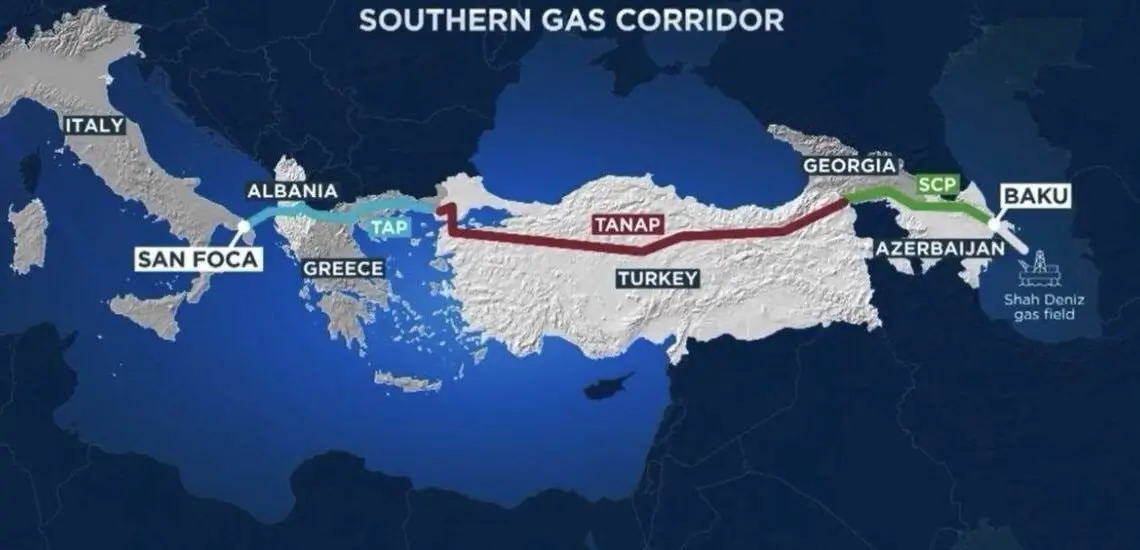In a rapidly shifting geopolitical chessboard, the United States is aggressively consolidating its influence in Azerbaijan signaling a deliberate and calculated move to counterbalance Iran and Russia in the South Caucasus. Through military cooperation, energy realignment, and control over vital trade routes like the Zangezur Corridor, Washington is forging a new front in its strategic contest for Eurasian dominance.
Since 2023, Azerbaijan has sharply pivoted away from Russia. Once a quiet ally of Moscow, Baku has now taken a confrontational stance, arresting Russian journalists, severing cultural ties, and vocally backing Ukraine with $40 million in energy aid. This shift has alarmed the Kremlin, particularly as reports from Russian intelligence suggest that Azerbaijani diaspora networks have played a covert role in Ukraine’s sabotage operations most notably the “Spider’s Web” campaign targeting Russian military infrastructure.
Tehran, too, is growing increasingly wary. Azerbaijan’s cooperation with the U.S. and Israel has turned its territory into a forward operating space against Iran. Trilateral discussions between Washington, Baku, and Tel Aviv have intensified, and Israeli drones previously tested on Azerbaijani soil were reportedly used during the 12 Days War against Iran. Intelligence sources indicate that Azerbaijan may now host a CIA-Mossad operations hub aimed at destabilizing the Caucasus and Iran’s northern frontier.
The linchpin of this strategy is the Zangezur Corridor a narrow strip of Armenian land bordering Iran, vital for overland transport between Azerbaijan and its Nakhchivan exclave. Washington is reportedly seeking a 100-year lease on the corridor, which would transform it into a militarized logistics and surveillance hub. U.S. control of this corridor would provide an ideal staging ground for sanctions enforcement, regional intelligence gathering, and the projection of hard power along Iran’s vulnerable northern flank.

Beyond military imperatives, the Zangezur Corridor also offers strategic trade leverage. Washington seeks to redirect Eurasian commercial flows through this passage, bypassing Russian-controlled routes while also disrupting China’s Belt and Road Initiative. Energy plays a central role in this calculus. Azerbaijan’s pipelines like the Baku-Tbilisi-Ceyhan (BTC) and TANAP are already critical alternatives to Russian energy exports. Since 2021, Azerbaijan has earned over $12 billion from energy deals with the European Union, and it has acquired a 10% stake in Israel’s Tamar Gas Field. These moves align with Washington’s broader goal of weakening Iran’s dominance in regional energy markets.

Iran, already under heavy Western sanctions, is increasingly isolated. The Zangezur Corridor, if fully operational under U.S. or Turkish control, could reroute up to 60% of Iran’s trade with the Caucasus strangling Tehran’s access to regional markets. Compounding this threat is Azerbaijan’s close relationship with Israel, which risks stirring unrest among Iran’s 20 million ethnic Azeris a sensitive demographic Tehran regards as a red line. Iran has responded by ramping up military drills along its border with Armenia, particularly in Syunik province, signaling its deep concern about possible encirclement by NATO-aligned forces.
Is Azerbaijan the “Next Ukraine”?
A state positioned as a proxy frontline against Russia. NATO-aligned surveillance and airstrike infrastructure could soon take root in Azerbaijan’s airfields, mimicking patterns seen in Ukraine prior to the 2022 war. Israeli drones already deployed near Iranian airspace underscore the potential for escalation. Baku’s alignment with Ukraine and its provocative stance toward Moscow raise the specter of a new flashpoint that could spiral into open confrontation.
As the United States continues its forward push into Azerbaijan, both Tehran and Moscow are recalibrating their strategies. What is unfolding in Azerbaijan is more than just a regional realignment it is a deliberate geopolitical offensive by the U.S. to encircle its rivals, weaken their economic arteries, and redraw the balance of power in Eurasia. For Iran and Russia, the message is clear: the South Caucasus is no longer a buffer zone, it is now a contested frontier in the 21st-century great power struggle.





